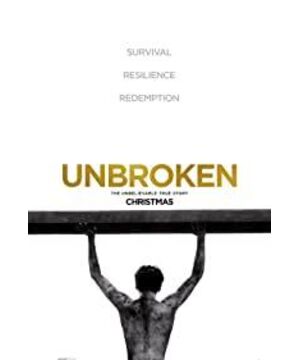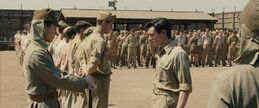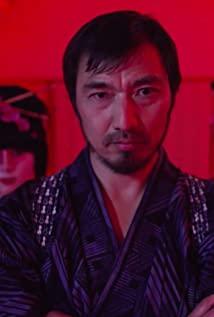"The West has heroes who have returned from prisoner-of-war camps, and the East does not accept the taint of being captured. The suffering inflicted by the enemy determines how we view heroes."
The whole film is much like a biographical film, depicting how an American hero can be a hero. It can be seen from this that there are indeed many differences between the definition of a hero in the eyes of Americans and the definition of a hero in East Asian cultural circles. Unlike other heroes, Louis Zamperini doesn't do anything earth-shattering throughout the film, and most of the content is just the tragic encounter of the protagonist in a prisoner of war camp. But it is these spirits manifested in suffering that make heroes heroes.
The whole film can basically be divided into six stages. The first stage runs from Louis' childhood until his participation in the Olympics. As a first-generation Italian immigrant, Louis was naughty and rebellious from a young age, and was hated by people in the town. But it was the tolerance of his family, especially his brother's encouragement, that gradually changed Louis' character. This story tells how little Louie grew from a bear kid everyone hated to an Olympic athlete who fought for victory. In the end, Louis participated in the 1936 Olympic Games in Berlin, Germany as the track and field representative of the United States, achieved ideal results, and was received by the head of state. The second paragraph is about Louis and the crew members driving the B24 bomber to bomb the Japanese military base. The whole film feels like a war movie.
The story lines of the first and second paragraphs alternate, thus avoiding the dullness of a linear narrative. This kind of perspective that jumps over and over again in the past and present is still very attractive to the audience. But unfortunately, this is purely an editing technique, and there is no obvious causal logic between the first and second paragraphs before and after, which is different from "Slumdog Millionaire". The same way of jumping back and forth in the timeline is also adopted. "Slumdog Millionaire" tells a very rigorous story. The past and the present are alternated, but it is full of inner logic. The slum experience in the past always corresponds to a certain puzzle of the present. This kind of coincidence or the deliberate causal logic of the script combined with the lens language of the perspective jumping repeatedly in the past and the present has a very good effect.
But starting from the third story, the whole film begins to tell the story strictly according to the linear narrative. The third segment is that Louis Zamperini and the crew were on the way to perform a search and rescue mission when the plane disintegrated, so they drifted at sea for 47 days. In the end, only Louis and Philip survived. The fourth paragraph is that the surviving two were discovered by the Japanese and imprisoned on the island. The two were mistreated on the island, but this was only the beginning of the suffering the Japanese inflicted on them, and they were then escorted to a prisoner-of-war camp in Tokyo. The fifth part of the story tells the story of Louis Zamperini being mistreated by Japanese officers in a POW camp in Tokyo. Because of his status as an Olympic athlete, Louis received special "care" from Mutsuhiro Watanabe, a prisoner of war camp officer, and beatings were commonplace, but Louis never gave in anyway, and even refused to cooperate with the temptation of preferential treatment. With the Allied victories, the Japanese army was dying, and the prisoners of war were transported to camps farther north, and the sixth part of the story began. Here, Louis and other prisoners of war endured heavy physical labor together. Some prisoners of war fell to their deaths due to the heavy labor. Some prisoners were tortured to death by guards, but in the end Louis and other prisoners of war still waited until the end of the war. that day.
The story is relatively heavy as a whole, and the whole film is not about a typical hero, the kind of hero who kills many enemies on the battlefield and makes the enemy fearful. As the protagonist, Louis Zamperini does not have any glory that he can take out. What he embodies is the tenacious will to survive in difficult situations and the principle of sticking to the bottom line in front of the enemy. In the film, I was deeply impressed by the words of the leader of the Allied prisoners of war in the Tokyo Detention Center: "Our victory is not to die with the enemy at the risk of needless death, but to live until the end of the war". This sentence precisely summed up the principles of conduct of Allied soldiers in POW camps. But treating prisoners of war as heroes was a novel experience for us after all. Unlike the West, we rarely accept a hero who has been a captive, so we have to explore the reasons behind it.
It is shameful to betray one's own country. This is the same in the East and the West. No one will look down on a traitor. But there are huge differences between the East and the West in how they view captivity. In the eyes of Americans, it is not shameful to be a prisoner of war. As long as you can keep the bottom line and not betray the motherland, you are a hero. So at the end of the story, Louis is welcomed by the people of his own country as a hero. There are countless examples similar to Louis. For example, MacArthur, who was defeated by the Japanese army in the Philippines battlefield, was welcomed by the people after returning home and had the opportunity to continue to command the army in the future. It was a shame, and the American soldiers captured in the Korean battlefield returned home. an honor. It is unimaginable in Eastern culture that captured soldiers and defeated generals can enjoy the treatment of "heroes". After all, in the eastern culture, being captured is a stain. Those who have been captured have all their previous glory erased, and they will be shouted and beaten by everyone.
There are cultural factors behind the differences between the East and the West on the subject of being captured. First of all, countries in the eastern world that have been influenced by Confucian culture have a tradition of "killing one's body and becoming a benevolent person". A scholar can be killed but not humiliated. The abuse of the enemy is a destruction of one's own honor. In order to ensure the purity of one's own honor, it is not a pity to sacrifice one's life. In the hands of the enemy, there is the possibility of being "humiliated", so the countries in the eastern cultural circle are unwilling to be captives and look down on captives. In contrast, the West does not regard the torture of its own body as a destruction of its own honor. On the contrary, due to the Christian tradition, suffering has the meaning of God's test and has a kind of legitimacy. Just as God tested Abraham's loyalty, Jesus was crucified, and the physical torture was not only a damage to his own reputation, but a test and sublimation of his own spirit. From this perspective, it is understandable that there are huge differences in attitudes towards captives between the East and the West. The East regards being captured as a humiliation, and the West regards being captured as a test. In this way, it is not difficult to choose whether to kill a benevolent or save one's life.
Looking back and thinking about the meaning of the film's title "Unbroken", it was the finishing touch. The body can be captured and abused, but the heroic spirit can never be defeated. In the prisoner of war camp, Louis faced beatings and abuses, did not give up hope of life, and did not succumb to violent threats. Even as a prisoner, he still showed a heroic spirit, and it is no wonder that Americans regard him as a hero.
It is conceivable, however, that such a person would never be admired and worshipped as a hero in Eastern cultures, because in Eastern cultures, being a captive is itself a stain, whether voluntarily or by force.
View more about Unbroken reviews











